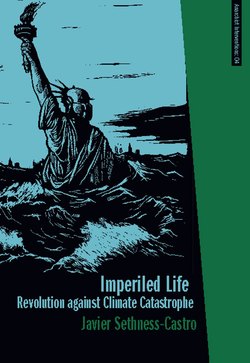Imperiled Life

Реклама. ООО «ЛитРес», ИНН: 7719571260.
Оглавление
Javier Sethness. Imperiled Life
Отрывок из книги
Foreword by Paul Messersmith-Glavin 1
Acknowledgments 10
.....
—Paul Messersmith-Glavin
Against approaches that defend existing society through reforms were the perspectives and actions of the revolutionary association known as Anti-C@p in Cancún. An explicitly anticapitalist grouping, Anti-C@p was comprised of autonomous youths hailing largely from Mexico City and connected to Marea Creciente México (Rising Tide Mexico). Anti-C@p’s vegetable-oil-powered bus, which also had appeared at the Encounter for Autonomous Life in Oaxaca de Juárez eight months previously, was decorated with murals commemorating the life of Lee Kyung Hae, a Korean agriculturalist who committed suicide in protest of neoliberal capitalism during the World Trade Organization meetings in Cancún in 2003. While tied in ways to Via Campesina’s forum against COP, Anti-C@p carried out autonomous actions separate from it. One march organized without a permit by Anti-C@p in the streets of downtown Cancún saw scores of Mexican youths donning Zapatista-style masks and mobilizing with the goal of reaching the local branch of PROFEPA, the Mexican federal government’s environmental prosecution agency. Anti-C@p had also planned to disrupt a conference at which Calderón, World Bank president Robert Zoellick, and Walmart CEO Robson Walton were to speak—but it was prevented from doing so due to the police checkpoints erected between the city center and the zona hotelera. Indeed, in a spirit of internationalism, during the mobilization called for by Via Campesina during COP’s second week, the Anti-C@p bus carried a banner commemorating the two-year anniversary of the murder in Athens of fifteen-year-old Alexandros Grigoropoulos by police. At these and other demonstrations, Anti-C@p presented a spirit of passionate rage against the cruelties of constituted power and the system it upholds—“outbursts of anger in memory of the suffering of [humanity],” as Christos Filippidis characterizes the December 2008 riots in Greece.[25] Similar in this sense to their Greek comrades, and in marked contrast to the other critical currents to be found in Cancún, those associated with Anti-C@p also expressed a degree of sadness with regard to the state of the world. It is unclear whether this intermixing of passions can be considered an expression of the “hopeless sorrow” of which Hegel warns, but it was undoubtedly informed by what Arendt finds to be “the most powerful and perhaps the most devastating passion motivating revolutionaries”: “the passion of compassion.”[26]
.....